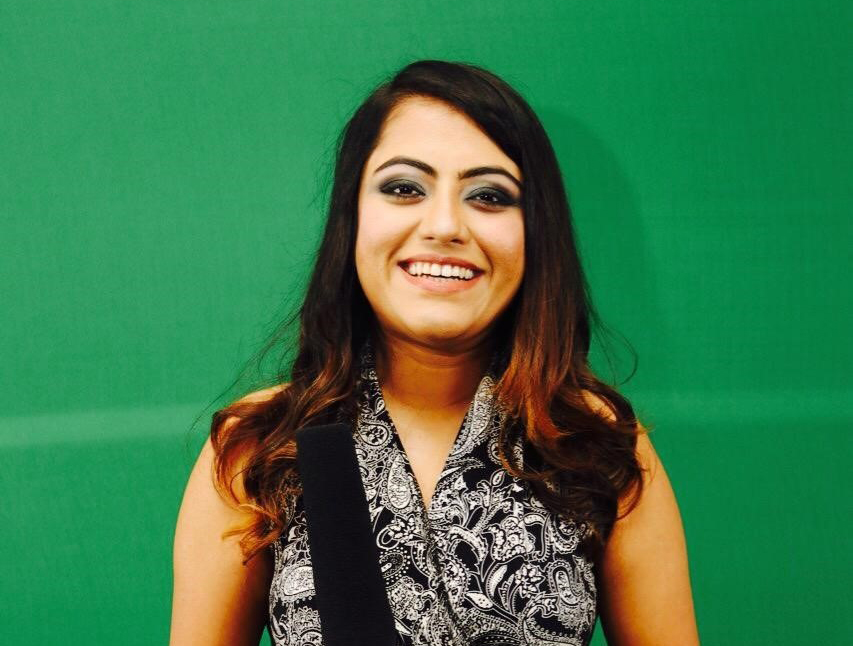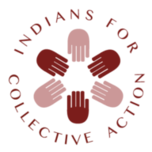
Dr. Datta spoke with ICA about Aaroogya's work before and during the COVID-19 pandemic, vaccine hesitancy, and how to prepare for the inevitable third wave.
Work at Aaroogya Foundation before and during the COVID-19 pandemic
ICA: Tell us about your work at Aaroogya International Foundation before the pandemic struck.
Dr. Datta: Established In 2017, Aaroogya International is a non-profit that focuses on early detection of common cancers like breast, cervical and oral cancers in women in urban poor, rural poor and educationally backward areas across developing nations operating in India and Uganda currently. We empower frontline health workers like ASHA/ANM in India and mid-level healthcare workers in Africa to screen women for cancer. We do this through artificial intelligence assisted tech intervention and on-ground support by our fellows.
Our mission is to reach 50 million underprivileged women or more across developing nations for early detection of common cancers and save a life. we do it by working with governments, business, and NGOs and train frontline healthcare workers to screen women for common cancers on the My HealthLine mobile application.
As of today, 3 out of 1000 people have been victimized due to “COVID 19 pandemic” The silent “cancer pandemic” happening year after year will affect 100 out of every 1000 Indians will have cancer by 2030. Women will suffer from the 3 of the top 5 cancers (Breast, Cervical and Oral)
Late detection of cancers due to poor awareness and infrastructure causes death and pushes the whole family into a poverty trap. Late detection of cancer causes the expenses to go upto INR 1.5M - 2M/ USD $20,000 to 27,000 versus INR 0.4M/ USD $5,500 when detected early.
My HealthLine consists of Web portal, Application and Helpline system in many Indian and International languages. The frontline healthcare workers, armed with AI-enabled software will conduct symptom assessments, surveys and screen the target population for oral, cervical, breast cancers and Covid-19. The continuous process over the period of the programme will result in skilled healthcare workers, an aware general population, seed the preventive healthcare acumen and collect real-time health data. The real-time health data will help map the population for habits, chronic diseases and disease burden.
ICA: How did your activities change once India took strict measures during the early days of the pandemic? What have Aaroogya’s activities been during the pandemic?
Dr. Datta: We became more relevant and grew 100-fold more during pandemic as digital forms of healthcare services became primarily the source of solutions across borders.
We formed an international consortium of 23 social and technology organizations like The/ Nudge Foundation, Intelehealth, Videowiki, Goonj, Pratha, CISCO, WIPRO, Pratham, Noora Healthand many more called the “COVID -19 Pandemic Wellbeing Task Force.”
Key successes in the project led by Aaroogya International
- Received 1.5 lakh calls to My HealthLine and created a consortium of 23 Social and Technology organisations called COVID-19 Pandemic Wellbeing Task Force operating 55 places across India
- Of these, 25000+ calls to My HealthLine were for medical services like suspected COVID cases concerns, general health issues, women’s health and mental health
- 104 calls received and serviced with requests for PPE kits
- Website with videos in 11 languages and helpline in 13 languages available for health education - social distancing, hand hygiene, fighting stigma due to COVID, etc.
- 27000+ site visitors accessing educational content
- 4400+ high-risk communities (slums, migrants) undergoing COVID-19 screening - 167 high-risk patients identified and provided information for testing
- 1000+ doctors, policy makers, entrepreneurs, scientists and civil society organizations reached
Technology Use by Aaroogya, and Reaching Those Without Smartphones
ICA: Tell us about the telemedicine and digital health approaches used by Aaroogya. Did these need to be stepped up during the pandemic to reach more people? Do people need smartphones to access such help? What about those without access to technology?
Dr. Datta: Yes, My HealthLine suite of products, in the form of localized mobile application, vernacular helpline information system, data dashboards, and multilingual website had to ramp up 100-fold during the pandemic.
We do need smartphones for mobile applications and websites, the primary users of which are frontline healthcare workers like ASHA in India and VHTs in Uganda, the first line of interaction between the community at the base of the pyramid and the healthcare providers.
The vernacular helpline information system works wonders for those without smartphones and the internet.
But the point is, the landscape is about quality service delivery now, and technology is the most important tool, if anyone needs to invest, smartphones and the internet for ASHA in India is the single most important thing in my opinion. Without which data, diagnosis, and delivery (the 3 D’s) in my words are impossible to achieve for providing healthcare at the Last Mile.
I keep saying, if anyone wants to help Aaroogya, give our frontline healthcare workers smartphones, internet, and technology infrastructure.
Number of Infections and Deaths, Vaccine Hesitancy, Preparing for the Third Wave
ICA: Getting an accurate count of those infected and those who have died has proven to be challenging. In some reports, the deaths in India are likely to be 10 times that of official reports. What is your perspective on this, based on your observations and experience?
Dr. Datta: The majority of India’s population, a full 70%, lives in rural areas, without smartphones, real-time data collection and triaging. Given this, we are merely scratching the surface: the actual counts cannot reach real numbers without this infrastructure in place. It is surely 1/100th of what’s being recorded in terms of numbers.
ICA: Tell us about the availability of vaccines, and about people’s interest/willingness to get them. Have you had to tackle issues of vaccine hesitancy?
Dr. Datta: Oh yes, I was one of the first who got vaccinated and I got at least more than 200 calls a day to ask about how I was feeling. It was so bad that many doses got expired. It was only during the second wave that people understood the stark differences between the ones being affected mildly if vaccinated, and suddenly we fell short of doses.
We have many villages here whose residents are scared of vaccines. There are random theories like fertility will be hampered or magnetic field develop in the body, and many more in the Whatsapp circulation system.
ICA: Some believe that a third wave is inevitable. How can India prepare for this? What can be done now to minimize the magnitude of a potential crisis?
Dr. Datta: People need two things: Masks and vaccination, I cannot say this clearly enough. The government and concerned bodies must have realized that without high investment in the primary and distributed healthcare delivery system, and only ramping up tertiary care will not work anymore. It is not sustainable. Someone told me three years ago, young talent like you invested in public health is a waste. And here you see pandemic has derailed the whole world irrespective of finite resources. Investments and fostering technology-led healthcare start-ups are another essential pillar. There is no way we can build physical infrastructure to tackle every district in next few years and also amplify manpower to that levels so quick. technology, and digital support system is the key.
ICA: The pandemic has affected every one of us is different, sometimes in unexpected ways. How has it affected you? Has it changed your thinking in any way?
Dr. Datta: I lost my young uncle to mental health crisis, which led to an anxiety attack and eventually a heart attack. He left a son who is 6 years old, Tintin, who lost his mother too. It has been like that for many families around the world. Mental health is a major and global parallel pandemic now!
"My mission in life is to create collective global motion and move the needle towards the positive horizon of gender equity and wellbeing. I create science-based, visual art-based, and technology-enabled products for the same. I was a dental surgeon and I like to call myself a creative entrepreneur, that's my full-time job in this life" - Dr. Priyanjali Datta
